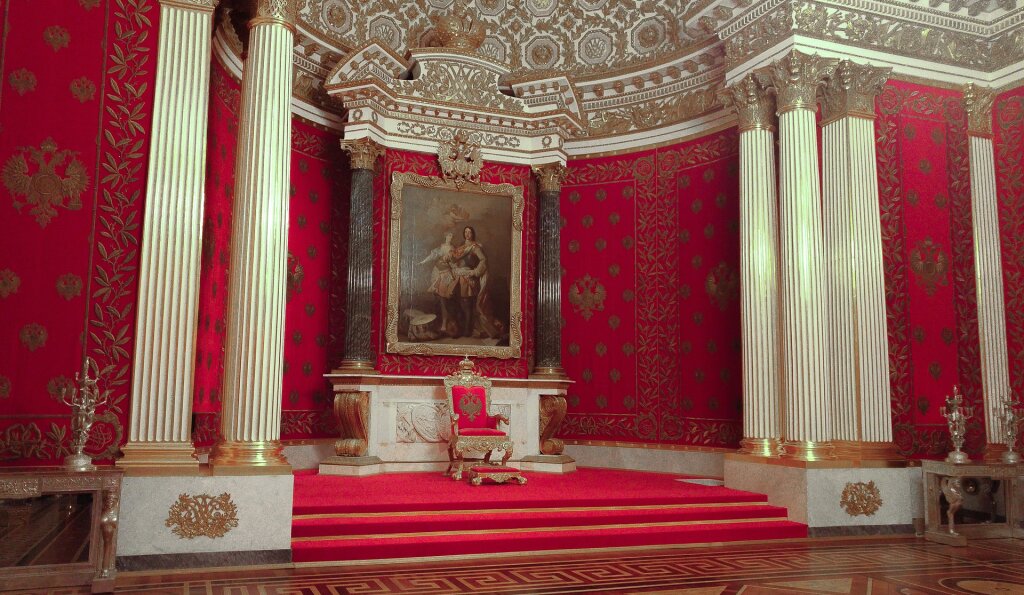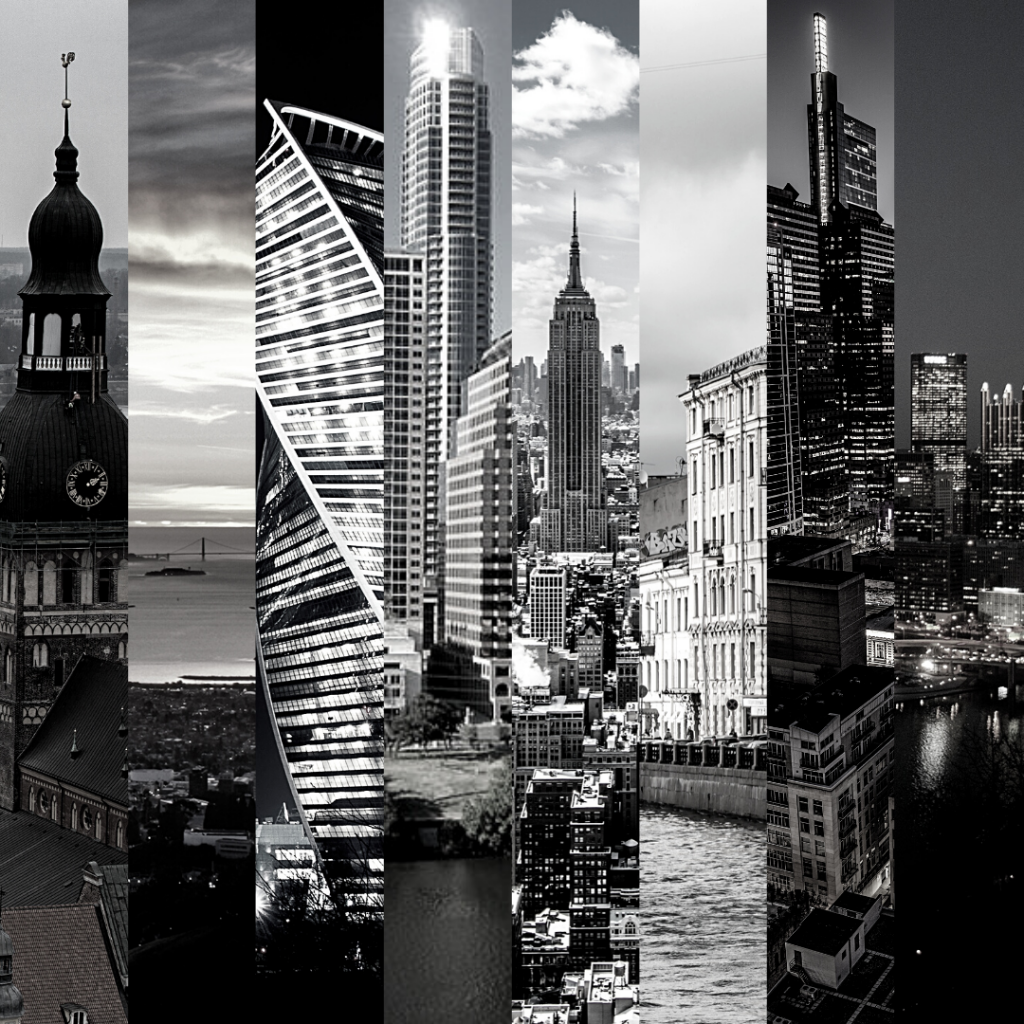The Jordan Center stands with all the people of Ukraine, Russia, and the rest of the world who oppose the Russian invasion of Ukraine. See our statement here.
Dr. Martin Aust is the Chair of the Department of Eastern European History, Institute for Historical Studies at the University of Bonn.
Russia's renewed attack on Ukraine since February 24, 2022, comes under the banner of historical revisionism. Putin denied Ukraine its independence in an article from the summer of 2021, and later in televised speeches from February 2022, denying the existence of a Ukrainian nation or a "real" Ukrainian state. It was Lenin's Soviet nationalities policy, Putin claimed, that first created the idea of Ukraine; in his version of history, Ukraine owes its 1991 borders to a "land grab" by Russian communists.
Putin's references to Russia's past greatness are an attempt at imperial restoration. After the revolutions of 1917, the empire was transformed from a tsarist state to a new entity called the Soviet Union. By 1991, the empire seemed to have dissolved, but today Putin is apparently trying to rebuild it. On February 21, 2021, he stated that all early-Soviet nation- and state-building in the Western parts of the former Russian Empire—that is, in present-day Finland, Estonia, Latvia, Lithuania, Poland, Belarus, Ukraine and Georgia—had been a historical error. Here Putin was no longer invoking Soviet nostalgia, but openly gesturing toward a renewed Russian imperialism.
In historical scholarship, this situation triggers a critical discussion about the status of imperial history as such. Have historians unintentionally contributed to imperial normalization or even nostalgia? When fundamental works on the history of modern national movements and nation-states were published almost forty years ago, scholars framed empire as a vestige of the pre-modern era that modern nations progressively overcame in the nineteenth and twentieth centuries. To this historiography, empire represented the regressiveness of monarchy, expansion, and violence, while the nation was an instrument of progress, the rule of law, democracy, and emancipation. The end of the Soviet Union in 1991, however, sensitized historians to the fact that imperial entities continued to exist long into the twentieth century. The end of the Soviet Union could therefore be understood as the end of the decolonization process that had created numerous sovereign nation-states over the course of the twentieth century, especially between the 1940s and the 1970s. At the same time, this insight raised the question of how it was possible for empires to sustain themselves so far into the twentieth century.
The study of imperial pasts thus became a dominant trend in historical scholarship over the past 30 years. In the process, a historiography of empires established itself that ideally distinguished empires and nations and empirically examined the contribution of empires to globalization. Nations, in this framing, form clear borderlines between their own interior and the outside world, whereas empires are characterized by border spaces from their outside world. Nation-states offer equality of rights and duties to all citizens. Empires subject their population to varying degrees of inclusion and subjugation. Some are privileged, possessing political influence and rich economic resources, while others are marginalized and experience the violence of the imperial center. Infrastructures of modern capitalism emerged hand in hand with the colonial expansion of empires around the world: shipping, railways, telegraph lines, global chains of commodities.
In Russia's case, empire history has acquired a special significance since 1989/91. After the fall of communism in Europe, a new generation of historians sought to overcome the East-West wall inside their own discipline. A history of East-West antagonisms was to be replaced by a history of Europe as an integrated whole, and of Russia as part of a wider world. Instead of a juxtaposition of Western progress and Eastern backwardness, democracy here, autocracy there, there was an effort to conduct a more sensitive examination of commonalities and differences with an eye toward mutual entanglements. Empire history thus performed an important service, inscribing the history of Russia into a new global and world history. Measured against the ideal types of modernization theory in social history, Russia appeared "backward." As one among many global empires, meanwhile, Russia was no longer a deviation from the norm, but merely represented a further example of a general phenomenon.
Public intellectuals are currently calling on Germany to open negotiations with Russia, alleging that Ukraine cannot win the war on the ground. Has the historiography of empires unintentionally contributed to a subliminal acceptance of imperial politics? For two reasons, this seems doubtful to me. First, the historiography of empires has developed a nuanced view of how empires manage diversity, which sees inclusion and violence as two sides of the same coin. The imperial center could theoretically offer individuals from more distant regions opportunities for advancement; equally likely are attempts to secure imperial stability through mass violence. Empires could and did both promote and suppress national projects on a case-by-case basis. The dark side of empires has been illuminated by historical scholarship in dialogue with postcolonial studies and genocide studies.
Second, those in German public debates currently acting as Putinversteher ["Putin understanders"] are completely unversed in the history of empires. Their plea for negotiations with Putin does not proceed from a reading of historiographical texts, but from the unresolved consequences of a centuries-old German Russia complex—a history worthy of examination in its own right.
Turning away from the history of empires in historiography would mean upgrading politics, in this case Russia's current politics, to an instance that falsifies findings within the humanities. Condemning Putin's aggression and wanting Ukraine to win should not mean abandoning the category of empire in historiography. On the contrary: a historiography that asks how we might deal with resurgent imperial legacies would only add to our understanding of Russia's recent history and its ongoing war against Ukraine.



